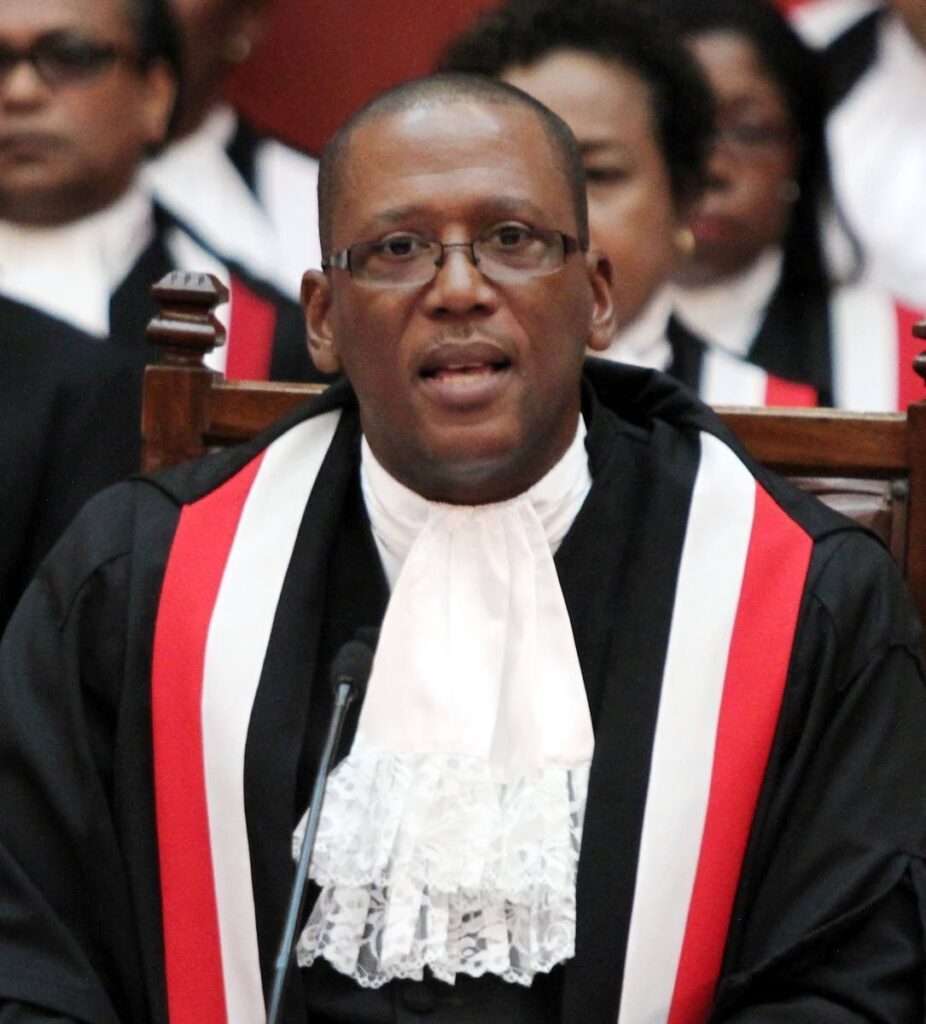Judiciary: CJ/AG correspondence shouldn't be subjected to FOI request

THE Judiciary has released its observations and concerns on the public procurement legislation.
Faced with several requests for its comments on the controversial law and freedom of information (FOI) requests from various quarters, the Judiciary released its comments with the approval of the Attorney General.
In a statement on Wednesday, the Judiciary said it was of the view that correspondence between the Chief Justice and Attorney General should not be the subject of an FOI request. Rather, it said there should be a system for certain things to be classified and declassified over time.
It said to allow an FOI request would set a dangerous precedent. Among those who sought the Judiciary’s comments was former Joint Consultative Council for the construction industry (JCC) Afra Raymond who has also been publicly advocating for the implementation of the law.
The Judiciary’s statement spoke of its role in providing advice in legislation. It said all new laws under review must be implemented but in its administrative capacity, it looked at the potential effect of legislation on its resources and systems.
“The Judiciary must, therefore, study the legislation to determine what it is required to do under the legislation and what systems and new processes and resources it must put in place. We must also be mindful of our constitutional role.
“There is well-established precedent for the Judiciary to be consulted on pending legislation to determine its likely impact on the Judiciary and the administration of justice.
“Impact may also, on occasion, include matters that affect the administrative independence of the judiciary.
“In this legislation, the Judiciary is also a public body under the act and required to function in accordance with the act. It is therefore both subject to and responsible in part for the implementation of the legislation.
“Therefore, the Judiciary in its administrative capacity, and having regard to both aspects of its administrative responsibility, proceeded to review the legislation, to analyse procedural, systemic and resource requirements and to proffer its comments,” the statement said.
The Judiciary concerns - 20 in all - were provided in a 29-page document which it provided to the AG.
“This is not a piece of legislation that one can implement on the fly. It must be planned for and resourced and at the very least, organisational re-engineering of some kind will be necessary. “The Judiciary would, respectfully suggest that if proclamation be first limited to procurement over a certain significant value while the operations in public bodies are studied and regulations and possibly amendments are studied for lesser expenditure,” was one piece of advice it gave.
It also warned that proclamation without everyone being ready “is a recipe for disaster.”
In June, Attorney General Reginal Armour, SC, told the Parliament that procurement legislation could not yet be proclaimed based on concerns expressed by the Judiciary and the Office of Procurement Regulator.
ThePublic Procurement and Disposal of Public Property Act 2015 was amended in 2016, 2017, and 2020 and assented to in 2020 and was now awaiting proclamation.
Armour’s admission evoked strong reactions from various bodies while regulator, Moonilal Lalchan, agreeing that many public bodies were not yet compliant with the legislation, was of the view it should be proclaimed.
The Joint Consultative Council (JCC) was very vocal about the proclamation of the legislation, accusing the Government of making excuses and not being committed to enacting the law.
Also calling for the enactment of the law were the American Chamber of Commerce, the Manufacturers Association, and the Transparency Institute.
Immediately after the reading of the 2023 budget, the JCC president Fazir Khan again chided the Government for bringing a $56 billion deficit budget without enacting the crucial piece of law.
“We continue to hear the Prime Minister publicly berate sectors of the society with respect to corruption.
“Dr. Rowley's rhetoric is clearly now more baseless as he has failed to ensure that procurement reform has actually taken place so far in two-term his tenure. The Finance Minister, on the other hand, has changed his tune since passing the procurement baton to the Attorney General in March 2022.
“ After bellowing a new date for operationalization, every year since 2017 in his budget statement, Mr. Imbert's new narrative…surreptitiously included a claim that this government is getting more value for the same expenditure alluding to reduced corruption.
“The JCC can find no data to support this disingenuous and insulting claim by the Finance Minister.
“..The fact that the Finance Minister has taken this approach to distract the public is further evidence of this government's resignation from not operationalising the act.”


Comments
"Judiciary: CJ/AG correspondence shouldn’t be subjected to FOI request"